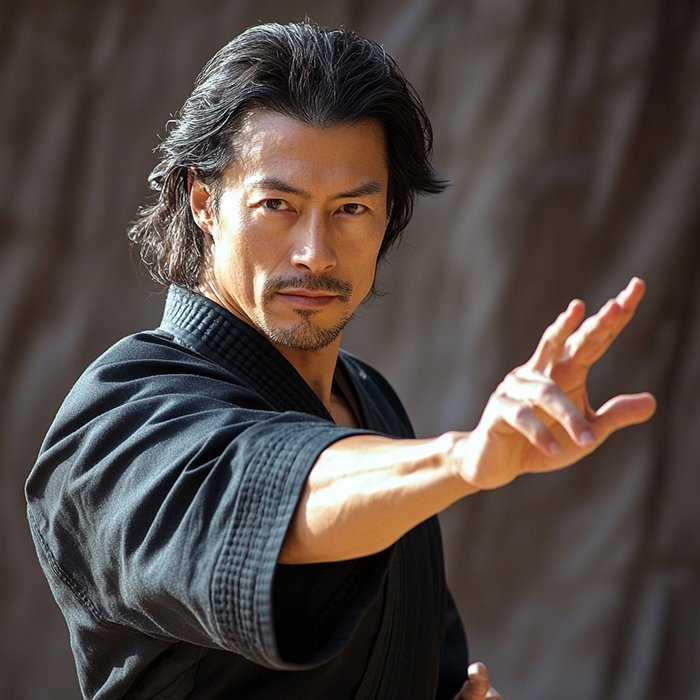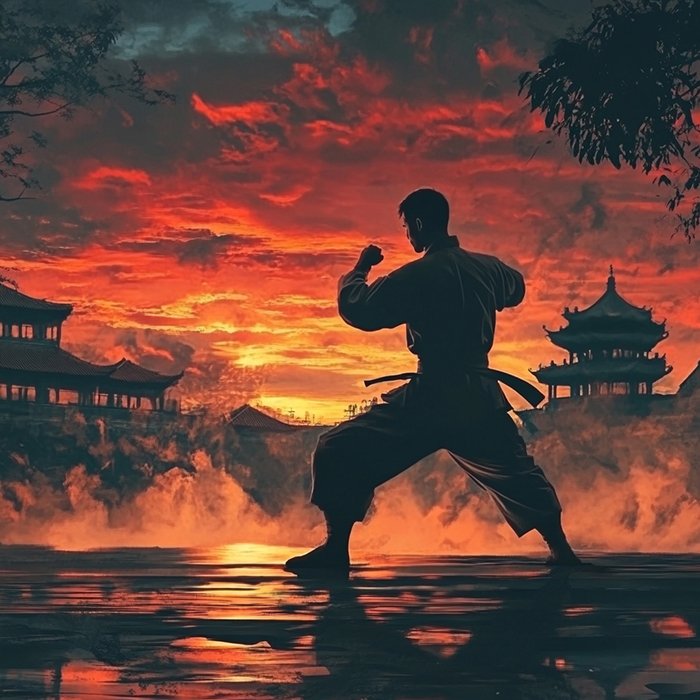Best martial arts for self-defense include Taekwondo, BJJ, Muay Thai, Krav Maga, MMA, Judo, and Wing Chun, each offering unique advantages.
Key Takeaways 📝
- Martial arts not only teach self-defense techniques but also foster confidence and discipline, making them valuable for personal growth.
- Krav Maga is often highlighted as one of the most comprehensive self-defense systems, covering striking, grappling, and weapon disarming.
- While popular martial arts like Taekwondo and BJJ have distinct strengths, their effectiveness can depend on the specific self-defense scenario.
- Choosing the right martial art involves considering personal goals, physical condition, and training availability to ensure a tailored fit for effective self-defense.
- The best martial art for self-defense is the one that aligns with your needs and interests, encouraging consistent practice and engagement.
Best martial arts for self-defense?

In a world where personal safety is a growing concern, knowing how to defend oneself is more important than ever. Martial arts can provide not only the techniques needed to protect oneself but also the confidence and discipline to handle threatening situations calmly. But with so many martial arts disciplines out there, which ones are the best for self-defense? In this detailed guide, we'll explore the best martial arts for self-defense, discuss their unique advantages, and help you decide which might be the right fit for you.
Introduction
Before diving into the specifics, let's address the fundamental question: Why learn martial arts for self-defense? Whether you're looking to boost your self-confidence, improve your physical fitness, or acquire practical self-defense skills, martial arts can offer a holistic approach to personal safety and well-being.
What Makes a Martial Art Effective for Self-Defense?
When evaluating the effectiveness of martial arts for self-defense, consider the following factors:
- Practicality: Techniques that are easy to learn and remember under stress.
- Comprehensiveness: Covers various scenarios, from striking to grappling.
- Adaptability: Can be applied against different kinds of attackers and situations.
- Accessibility: Suitable for people of different sizes, strengths, and ages.
The Best Martial Arts for Self-Defense
Taekwondo
Origin and Philosophy
Originating from Korea, Taekwondo emphasizes high, fast kicks and spinning jump kicks. Its philosophy focuses on discipline, respect, and self-control.
Self-Defense Applications
Taekwondo is particularly effective for self-defense due to its powerful long-range kicks. These kicks can keep an attacker at bay and create distance for escape. The art also incorporates blocks and strikes that can be used effectively in a self-defense scenario.
Strengths and Limitations
While its kicks are formidable, Taekwondo's focus on kicking can be a limitation in close-quarters combat. However, its emphasis on speed and agility is beneficial for avoiding and countering attacks.
Brazilian Jiu-Jitsu (BJJ)
Origin and Philosophy
Brazilian Jiu-Jitsu, developed in Brazil, emphasizes ground fighting and submission holds. It teaches practitioners to use leverage and technique over brute strength.
Self-Defense Applications
BJJ excels in self-defense scenarios where the fight goes to the ground. It allows a smaller defender to control and submit a larger attacker through joint locks and chokeholds.
Strengths and Limitations
BJJ's strength lies in its ability to neutralize threats on the ground. However, it may not address striking or dealing with multiple attackers as effectively as some other martial arts.
Muay Thai
Origin and Philosophy
Known as the "Art of Eight Limbs," Muay Thai hails from Thailand and uses punches, kicks, elbows, and knees. It focuses on toughness, endurance, and power.
Self-Defense Applications
Muay Thai's comprehensive striking techniques make it highly effective for self-defense. The use of elbows and knees in close combat can be particularly devastating.
Strengths and Limitations
While Muay Thai is versatile in striking, it does not focus on ground techniques, which can be a limitation when the fight goes to the ground.
Krav Maga
Origin and Philosophy
Developed by the Israeli military, Krav Maga is designed for real-world combat. It emphasizes aggression, speed, and efficiency.
Self-Defense Applications
Krav Maga is one of the most practical self-defense systems, covering all aspects of self-defense, including strikes, grappling, and disarming weapons.
Strengths and Limitations
Its no-nonsense approach makes it effective, but its intensity and aggressive techniques might not appeal to everyone, especially those looking for a more traditional martial art experience.
Mixed Martial Arts (MMA)
Origin and Philosophy
MMA combines elements from various martial arts, including boxing, wrestling, BJJ, and Muay Thai. It is known for its comprehensive approach to combat sports.
Self-Defense Applications
MMA provides a well-rounded set of skills for self-defense, covering striking and grappling both standing and on the ground.
Strengths and Limitations
While MMA is effective, it can be physically demanding and may require significant training to master the diverse techniques.
Judo
Origin and Philosophy
Originating from Japan, Judo focuses on throws and grappling, using an opponent's force against them.
Self-Defense Applications
Judo is effective in self-defense due to its emphasis on throws and controlling techniques, which can incapacitate an attacker without causing serious harm.
Strengths and Limitations
Judo excels in close-range combat but lacks striking techniques, which can be a drawback in certain situations.
Wing Chun
Origin and Philosophy
Wing Chun, a Chinese martial art, is known for its close-range combat and rapid strikes. It emphasizes efficiency and directness.
Self-Defense Applications
Wing Chun's quick and direct strikes, combined with its emphasis on controlling the centerline, make it effective in close-quarters self-defense situations.
Strengths and Limitations
While Wing Chun is effective at close range, it may not be as effective against long-range attacks or multiple attackers.
Factors to Consider When Choosing a Martial Art for Self-Defense
Personal Goals and Preferences
Consider why you're learning martial arts. Is it purely for self-defense, fitness, or personal growth? Your goals will influence which martial art is best for you.
Physical Condition and Limitations
Different martial arts place varying demands on the body. Choose one that fits your physical condition and any limitations you may have.
Availability of Training Facilities
Access to qualified instructors and training facilities can influence your choice. Ensure you have access to quality training in your chosen martial art.
Cultural and Philosophical Alignment
Some martial arts come with rich cultural and philosophical backgrounds. If these aspects are important to you, consider them in your decision.

Choosing the best martial art for self-defense is a personal decision that depends on various factors, including your goals, physical condition, and personal preferences. Each martial art offers unique benefits, and understanding these can help you make an informed choice. Remember, the best martial art is the one that suits your needs and that you enjoy practicing.
FAQs
What is the most effective martial art for self-defense?
The effectiveness of a martial art for self-defense depends on the individual's needs and the context of the situation. Krav Maga and MMA are often regarded as highly effective due to their comprehensive nature.
Can I learn martial arts for self-defense online?
While online resources can supplement your training, learning martial arts effectively requires hands-on practice with qualified instructors.
How long does it take to become proficient in martial arts for self-defense?
Proficiency varies by individual and martial art but generally takes several months to years of consistent practice.
Is age a barrier to learning martial arts for self-defense?
No, many martial arts can be adapted for different ages and physical abilities. It's important to choose a style that matches your fitness level.
How do martial arts improve self-confidence?
Martial arts training builds self-confidence through improving physical fitness, teaching practical self-defense skills, and fostering a sense of achievement and discipline.














